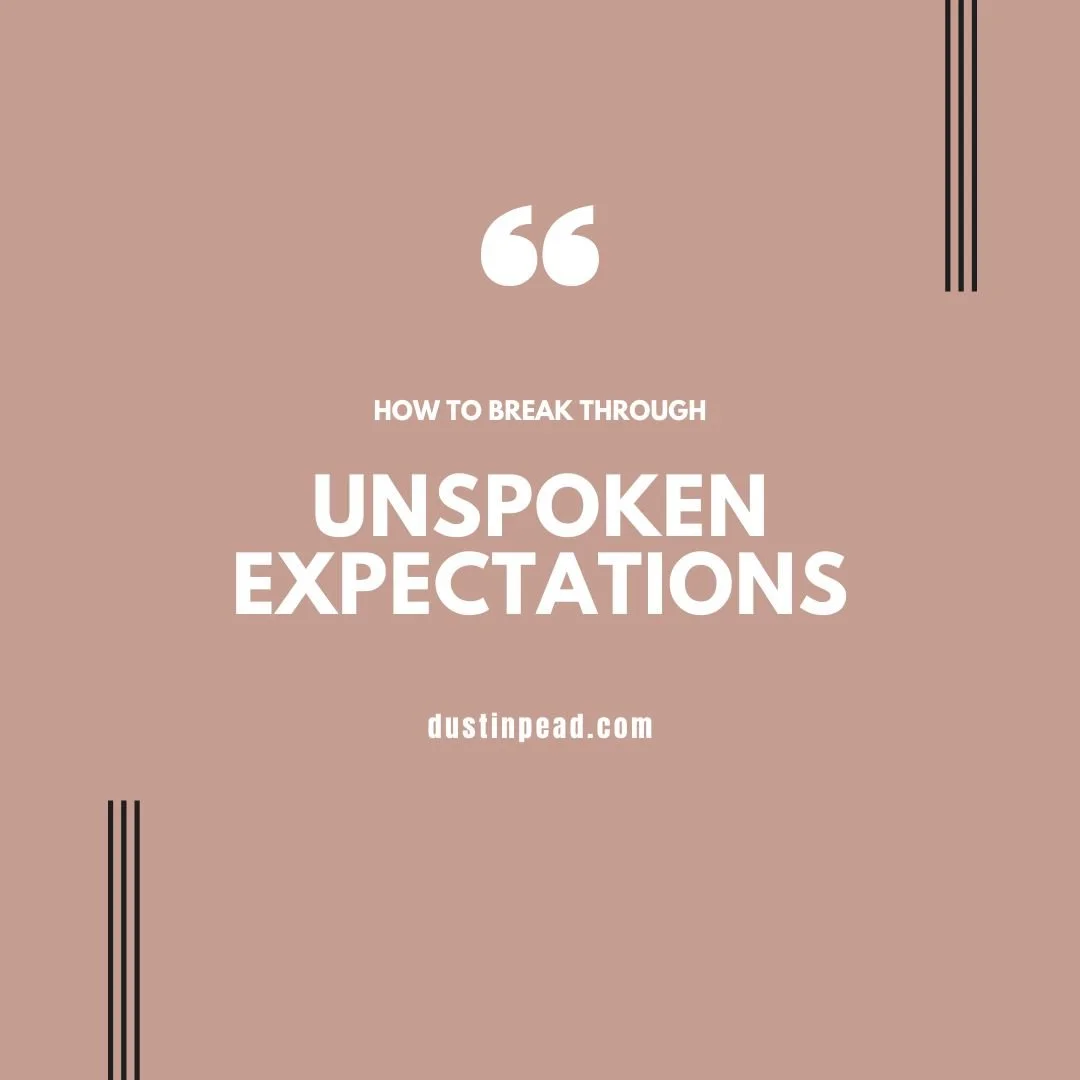Unspoken Expectations
In my journey, I have experienced so many breakdowns and errors in communication. The client or boss expects one thing and you’ve spent a month creating something completely different. Your co-worker or partner presents an idea that you thought you were both on the same page about to find out then they pitched something completely different. You thought your idea was what the client wanted so you spent lots of time and money developing it to find out then you were wrong.
All of these are examples of unspoken expectations in the creative industry.
Unspoken expectations lead us to all sorts of frustration, disappointment, and avoidable drama.
We must learn to get the whole picture from others and commit to communicating the full gambit of our own expectations. I cannot tell you the number of meetings I’ve been in where we dismissed with only 80-90% of the information needed to take on the project we just spent 2 hours discussing.
Here are a few good practices to help keep you from having unspoken expectations cripple your next project:
Use a checklist. This sounds so elementary but it’s so much easier with a list in front of you about what needs to be communicated.
Refuse to walk away without action items and dates. You can’t end a meeting without clear next steps in place.
Paint Done. If you have a certain expectation or one has been placed on you, use a tip from Brene Brown and give them a clear picture of what “done” looks like for you on this project or task. In return, ask them for the same courtesy. This goes a long way in making your both parties’ expectations are, at minimum, understood.
Dedicate one person to be “that guy”. We all know the guy we love to hate, who keeps you on task in a meeting and ruins all the fun of side tangents, but that guy is so vital. Circulate the role like a designated driver if you need to, but make sure this guy is always represented in the conversation.
Share your last 2% with respect and honor. The last 2% is everything you wanted to say, and maybe needed to say, but you didn’t. Not communicating this information will always lead to more frustration for both parties. CAUTION: This MUST be done with respect and honor. The last 2% is not an opportunity for uncontrolled frustration to be let free.
How do you need to shift your communication to meet realistic expectations this week?
